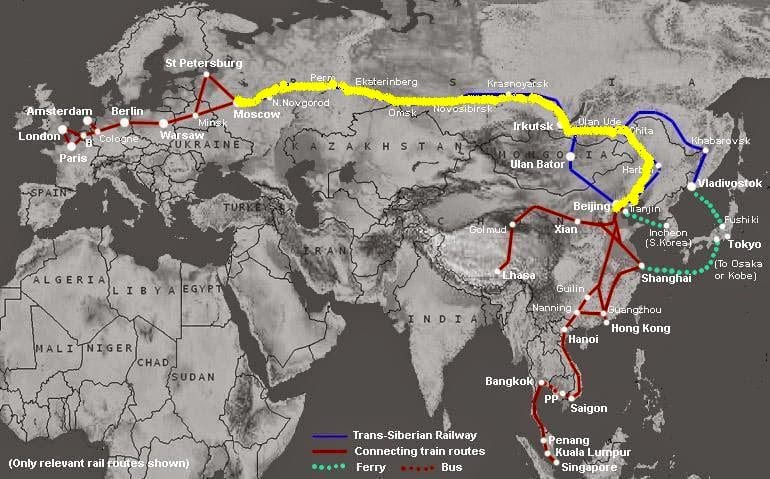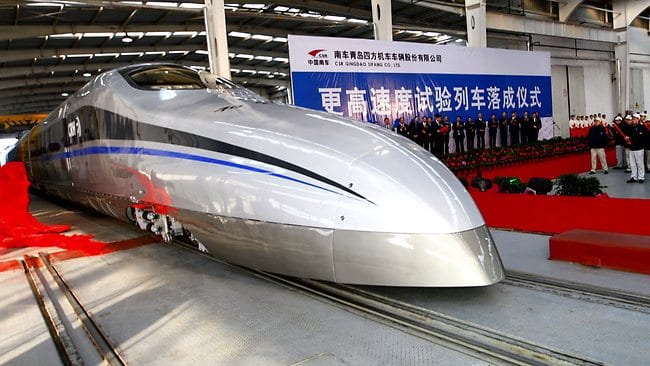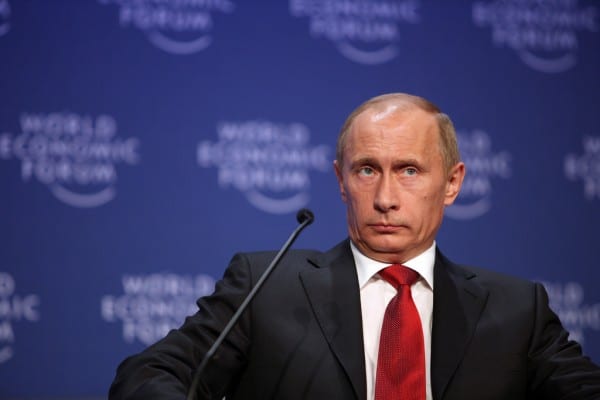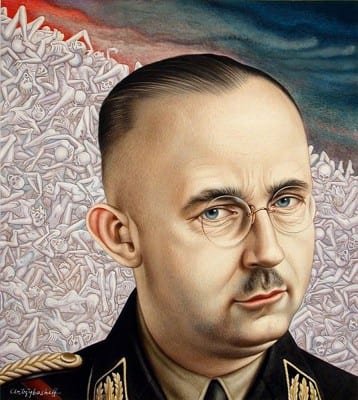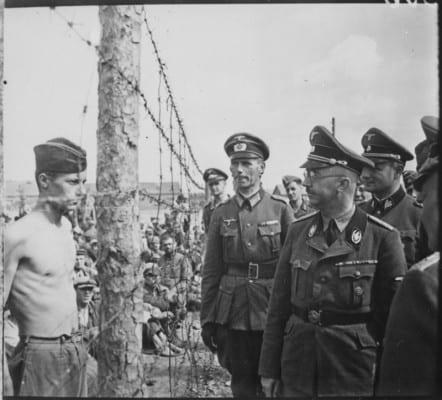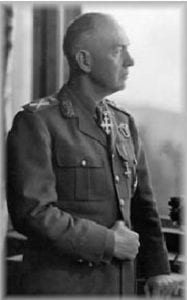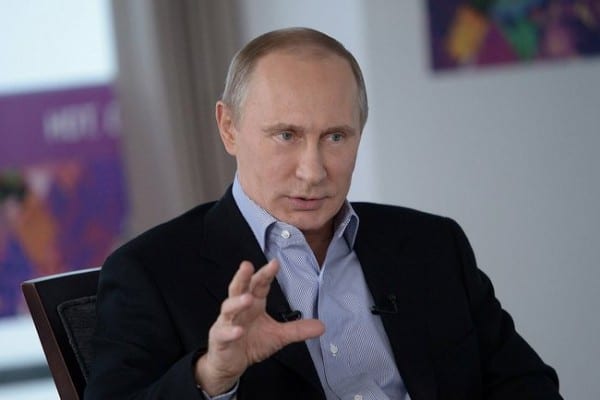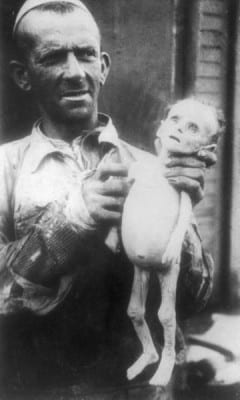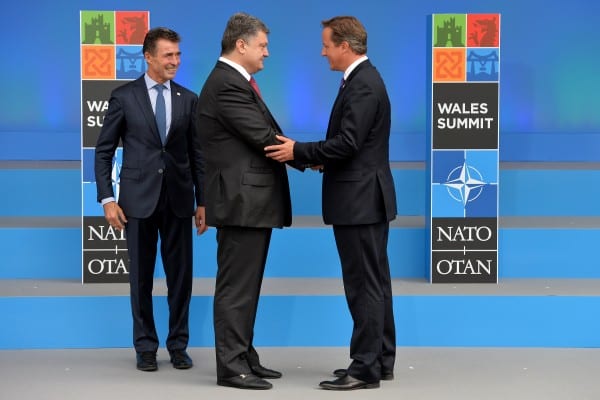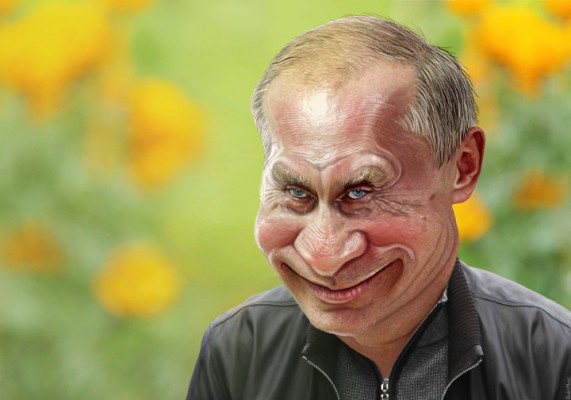PATRICE GREANVILLE
Hatchet job on Putin only demonstrates the conformist spirit permeating US journalism
[dropcap]Frontline[/dropcap] sees itself as an implacable observer of political and social reality, an uncompromising witness to contemporary history. The truth is often a lot less flattering.
As a legendary liberal franchise, Frontline has frequently produced interesting and even controversial reports on a variety of topics, including the NRA’s intransigence to gun control, the abortion wars, JFK’s assassination, the modern KKK, “Bush’s War” (somewhat critical of the Iraq War’s genesis as something of a botched, incompetent affair, but not scandalized by its sheer immorality, arrogance, systemic roots or broader purposes), and a host of other issues, but when it comes to foreign policy questions in which the American empire is again competing with some invidiously designated foe (these days the villains are again Russia and China), it behaves, conceits aside, like the rest of the conformist pack, as little more than an stenographer to power.
The proof that this is the case can be found in Frontline’s recent hatchet job on Vladimir Putin (Putin’s Way, Jan. 14, 2015).
The show’s tagline promptly gives its true intention away:
“An investigation of Vladimir Putin. Included: the claims of criminality and corruption that have accented his reign (sic) as Russia’s ruler.”
Just reflect for a moment why the producers picked such poisoned words to define their subject: What do these words have in common, singly and jointly? They all connote bad things. Obviously in any random description of an important leader, when such threatening terms crop up the prudent reader will be well advised to run for cover.
The Frontline crew doesn’t dare say it openly, in a full sentence, as that would supposedly tarnish them, perish the thought, as “non-objective” journalists. So they simply let our brains do the logical collating of the hinted meanings. The upshot is that Putin, so described by invidious associative terms does not come out very cuddly.
It’ clear that from the start—and I would really like to know how this program was incubated, who proposed it and why—the idea was to present Putin as a ruthless opportunistic climber; an autocrat (they call his government a “reign”), bent on personal aggrandizement, saddled with a pathetic Napoleonic complex that propels him to see himself as the savior of Russia, and therefore a believer in the logic of authoritarianism. His personality—intimates the show— is an apt prop for the reconstruction of the Soviet Union project, an unexplained danger to the world that all “democracy-loving” people must help defeat in its crib. Why the triumph of the American hegemon does not present such danger to the world is naturally left out of the narrative. Haven’t we seen this self-approving claptrap before?
Given that thinly-veiled script, it doesn’t take long for the show to deliver an unrelenting cascade of innuendo against Putin. Apparently the show’s producers could not refrain from vacuuming up and regurgitating just about every negative cliché disseminated by the Western media since the official demonization of the Russian leader began, except that in this case, Frontline being Frontline, the closest equivalent to the New York Times on television, the weapon of choice is not so much the bludgeon favored by Fox News’ crude propagandists, but the scalpel and the stiletto, the half-truths and omissions of truth, and the decapitation of context, in short the far more subtle, insidious and highly effective natural tools of the centrist corporatist liberal.
The first few minutes set the tone:
ANDREY ZYKOV, Former Police Investigator: [through interpreter] Well, of course, there has always been corruption in Russia, but building it into such a meticulous system was something only Mr. Putin has managed to do. Could Putin be held criminally responsible based on the evidence that has already been gathered? Absolutely, yes.
From that point on, it only gets worse.
Students of American propaganda usually have a problem: not the scarcity of items to prove their case, but precisely the opposite, the overabundance of material. Practically everything said or shown on mainstream media that concerns American foreign policy, especially on television, is riddled with so much bias and outright falsehood that codifying and answering such outrages on a case by case basis is simply an impossible, gargantuan task, a fact that —besides their monopolizing the mainstream media—prevents any meaningful or timely response by genuinely impartial observers.
Frontline’s demolition job on Putin is but one of the latest examples. The producers of such an august program ought to be ashamed, but I suppose shame is not exactly the most likely feeling among these hard-working, comfortable, and largely insulated “journalists” who enjoy so much the perks of serving the Empire.
The Greanville Post.
APPENDIX I:
Full transcript of Putin’s Way
Putin’s Way (Jan. 14, 2015)
SOURCE: PBS.ORG
CORRESPONDENT
Gillian Findlay
WRITTEN, PRODUCED AND DIRECTED BY
Neil Docherty
NARRATOR: In the spring of 2012, Vladimir Vladimirovich Putin entered the Kremlin to start his third term as president of Russia. It had been a remarkable ascent— in just over 20 years, a journey from unemployed spy to modern-day czar.
Lieutenant Colonel Andrey Zykov has watched that climb to power. A former police investigator who once wanted to arrest Putin, he says his rise has come at great cost.
ANDREY ZYKOV, Former Police Investigator: [through interpreter] Well, of course, there has always been corruption in Russia, but building it into such a meticulous system was something only Mr. Putin has managed to do. Could Putin be held criminally responsible based on the evidence that has already been gathered? Absolutely, yes.
NARRATOR: In 2010, Zykov laid out evidence he had gathered from an investigation of Putin’s early years, in city government in St. Petersburg. He posted it on YouTube. Mysteriously, there have been efforts to delete it from the Web, but not before it was downloaded by Russia expert and author Karen Dawisha.
GILLIAN FINDLAY, Correspondent: And in its essence, what did that series that he posted— what did it— what was the summation?
KAREN DAWISHA, Prof., Miami University, Ohio: The summation of it was a detailed account of the criminal activities that he feels Putin was involved in— abuse of power, abuse of his official position, involvement in relations with organized crime, knowledge about money laundering— I mean, a whole range of economic crimes.
NARRATOR: Dawisha says that Zykov’s charges are part of a larger culture of corruption in Putin’s Russia. She has been gathering extensive documentation for a new book on what she calls Putin’s Kleptocracy and how he and his circle have shaped the country.
KAREN DAWISHA: I started thinking, instead of seeing Russia as a democracy in the process of failing, we need to see it as an authoritarian system in the process of succeeding, that they are not actually incapable of being democratic. They don’t want to be democrats. What about that? Let’s work on that thesis. And if that’s correct, when did that start? And that’s what took me to the ‘90s because they were stealing from the very beginning.
NARRATOR: In 1990, the old Soviet system was collapsing, but what exactly would replace it wasn’t clear. The uncertainty had a whole nation on edge. Among them was a young KGB officer named Vladimir Putin. He’d returned to his home town of St. Petersburg from his posting in Dresden, East Germany, and he was looking for work.
He would eventually eventually find it at St. Petersburg’s city hall. His former law professor, Anatoly Sobchak, had just been elected mayor. Sobchak’s widow, Lyudmila Narusova, remembers her husband’s response when his former student insisted on telling him that he’d been working for the KGB.
LYUDMILA NARUSOVA, Sobchak’s Widow: [through interpreter] My husband was shocked by the candor and asked what his job was. And he said he had worked in the German Democratic Republic, in East Germany. And he said, “Well, I just happen to be looking for people that know Europe, that know the languages, in order to work on foreign economic relations. They wouldn’t have hired an idiot to work in reconnaissance, so I hope you can manage it. Go work.” And it needs to be said that according to my husband, he never regretted it,
NARRATOR: Putin would soon be deputy mayor of the city, and crucially, chair of the committee on foreign economic relations.
KAREN DAWISHA: He was the linchpin. He controlled which foreign companies could register their offices and receive offices. After all, remember, all this property was Soviet property. The Soviet Union hadn’t fallen yet. So how was a company going to get access to property to set up a branch in St. Petersburg? Putin would have to assign it.
NARRATOR: Even as his star rose, there was an early example of his ambition. He commissioned a documentary about himself. It was called Power, made by Igor Shadkhan.
IGOR SHADKHAN, Documentary Filmmaker: [through interpreter] Putin had an agenda. He wanted to admit that he had been a KGB agent in foreign reconnaissance.
VLADIMIR PUTIN: [Shadkhan film] [subtitles] After university, I got an offer to work for the Committee for State Security.
NARRATOR: For Putin, it was an effective way to out himself as a former member of the reviled KGB. But for Mayor Sobchak, Putin’s past would prove useful. After all, he was running a city with a notorious criminal history, and according to prominent political analyst Stanislav Belkovsky, he needed someone who could work in its shadows.
STANISLAV BELKOVSKY, National Strategy Institute, Moscow: St. Petersburg called the bandit capital of Russia, gangster capital of Russia, at that moment. And the mayor’s office should communicate to those groupings some way. But of course, Anatoly Sobchak could not be involved in such contacts, and it was Vladimir Putin who was in charge.
IGOR SHADKHAN: [through interpreter] When I arrived for the shoot, his entire lobby was full of foreigners. These included Finnish, Germans, and there was some agreement they were all coming to. Now, the agreement for the most part was about food aid for St. Petersburg.
NARRATOR: Putin had his work cut out for him. The collapse of the Soviet Union brought terrible food shortages to St. Petersburg. The agricultural system was in chaos, and there was little foreign currency to buy food from abroad. To fill the shelves, a program was devised. Companies would be allocated raw materials, like oil and minerals, to be sold abroad, and the money was then used to buy food.
In his film, the deputy mayor assured hungry residents food was on its way.
VLADIMIR PUTIN: [subtitles] Butter, 2,000 tons. Dry milk, 2,000 tons. So this, in fact, covers our needs. This is very impressive, I’ll be honest with you.
NARRATOR: The trouble was, most of the promised food never arrived. Despair turned to anger, and then protests. A city councilor named Marina Salye was charged with investigating what had happened. Salye would eventually leave politics disillusioned and retreat to the countryside. But she kept all her documents. She says they show what went wrong in St. Petersburg in the ‘90s and who she believes was to blame.
MARINA SALYE: [through interpreter] So without going into all the details, I’ll tell you from this document, signed by Putin, all $124 million disappeared without a trace, without a trace, because from this list of materials that I have listed, not a single gram of food came.
KAREN DAWISHA: And what happened was fly-by-night companies were set up. Many of his friends, who are still around today, were behind those companies. The goods went out, and incomplete or no shipment came back. So millions, millions were made just in that episode alone.
NARRATOR: In the end, the St. Petersburg city council approved Salye’s recommendation to turn the case over to the prosecutors.
MARINA SALYE: [reading] [through interpreter] “We concluded that Putin and his assistant should be fired.”
NARRATOR: Mrs. Sobchak dismisses the investigation as a political vendetta against her husband.
LYUDMILA NARUSOVA, Sobchak’s Widow: [through interpreter] I understand that all of the “investigations,” quote, unquote, that were being undertaken by the deputies were complete rubbish. It was just a way to somehow influence my husband to get rid of Putin.
NARRATOR: But Sobchak protected his deputy. The case of the missing food would never be prosecuted. And Putin would deny the charges and blamed the companies and other bureaucrats.
A six-hour drive west of St. Petersburg is the ancient Svyatagorsky monastery. Andrey Zykov says he comes here often to find peace. He is haunted by case 144-128. It was an investigation into a construction company called Twentieth Trust, which had been registered by Putin’s economic relations committee. Lieutenant Colonel Zykov was the top federal investigator in St. Petersburg and became convinced that crimes had been committed.
ANDREY ZYKOV, Former Police Investigator: [through interpreter] So 2.5 billion rubles were transferred to the company’s account. The way it worked was the funds were supposed to be used for specific building projects but ended up being used for completely different purposes.
NARRATOR: The investigation tracked how the city paid Twentieth Trust to do work, how the work was never done and how much of the money disappeared. In one case, according to Zykov, money was siphoned off by Putin and his friends to build vacation villas in Spain.
ANDREY ZYKOV: [through interpreter] It was theft. Sobchak and Putin should have been jailed and would be in jail undoubtedly, Putin probably first and foremost, as the greatest number of documents and orders were signed by him.
NARRATOR: But Putin didn’t go to jail, he went to Moscow. By 1996, he’d begun his rise in the Kremlin and was soon in a position to help his mentor. Back in St.Petersburg, Anatoly Sobchak had a problem. He’d just lost the election and was the subject of yet another corruption investigation.
LYUDMILA NARUSOVA, Sobchak’s Widow: [through interpreter] In 1996, when Sobchak stopped being mayor, as is often the case in the Russian elite, a lot of people immediately turned their backs on him. Vladimir Putin was nearly the only one that didn’t do that.
NARRATOR: This time, Sobchak was questioned by prosecutors. But suddenly, he had a heart attack and was rushed to the hospital.
LYUDMILA NARUSOVA: [through interpreter] So when my husband had the heart attack, and it was hard to get him treatment under those conditions because people were calling the chief cardiologist of the city who was treating him, telling him, “Don’t treat Sobchak. Let him die”— that’s when I decided to take him overseas for treatment.
NARRATOR: It was an orchestrated escape. Sobchak took off on a national holiday weekend aboard a private plane apparently arranged by Vladimir Putin. Weeks later, he showed up in Paris, looking surprisingly healthy.
LYUDMILA NARUSOVA: [through interpreter] Vladimir Putin helped me organize that, risking everything.
NARRATOR: Back in the Kremlin, Putin’s loyalty to Sobchak had been duly noted. By 1999, an ailing Boris Yeltsin was nearing the end of his presidency and looking for a savior himself. His administration was the focus of a massive corruption investigation. Having parceled out much of Russia’s wealth to a band of oligarchs and allowed aides and family members to enrich themselves in the process, there was fear in the Yeltsin camp about what might happen if his successor proved less than understanding. He’d already hired and fired four prime ministers before anointing Vladimir Putin.
KAREN DAWISHA, Author, Putin’s Kleptocracy: Well, I think what they saw in him was that he had protected Sobchak. And as they said, “He didn’t give up Sobchak, and he’s not going to give us up.”
GILLIAN FINDLAY, Correspondent: How vulnerable were they at the time?
KAREN DAWISHA: Very vulnerable.
NARRATOR: But there was a problem. Putin was a faceless bureaucrat unknown to the public, who would have to win an election if he was to become president of the country and protector of the Yeltsin family. As in St. Petersburg, an instant biography was commissioned. Nataliya Gevorkyan was on the writing team. She now lives in Paris.
GILLIAN FINDLAY: What was the narrative that they wanted out?
NATALIYA GEVORKYAN, Putin Biographer: Just to— everything. I mean, where he comes from, who is he, why he was in KGB. He was. That was the main thing about him, he’s the KGB man. That’s all. So what they wanted to present him that he is a normal human being, he has parents, he has a biography.
NARRATOR: His biography tells of an only child who grew up in a poor quarter of St. Petersburg, an unusual boy who at age 16, went to the local KGB office and asked to join up He was told to come back later. Seven years later, he did, with a law degree, and after KGB training was assigned his post in East Germany.
GILLIAN FINDLAY: Once and always KGB. Can you explain to a Western audience— what does that mean?
NATALIYA GEVORKYAN: They are the people who prefer to operate in shadow. They are the people which are like state is first, and people are second. All this kind of things he has in him. And he cannot— I don’t think he can change it, you know? It’s unchangeable.
NARRATOR: He was so much the KGB man, he would take a turn as head of its successor agency, the FSB, in the year before he became prime minister. Then one month into his new job, in the fall of 1999, this. Bombs obliterated four apartment buildings in Moscow and other cities, all blown up at night while people slept. Hundreds died. This was Russia’s 9/11.
Russian historian Yuri Felshtinsky has written a book on the apartment bombings.
YURI FELSHTINSKY, Co-Author, Blowing up Russia: What we have to understand is the whole country is very nervous, that the feeling is that every several days, or like once a week, a building is going to be blown up.
NARRATOR: All of a sudden, a prime minister few Russians had heard about was everywhere, swearing revenge.
VLADIMIR PUTIN, Prime Minister: [subtitles] We’ll be chasing the terrorists everywhere, at the airports or in the toilet. We’ll waste them in an outhouse. End of story.
NARRATOR: Putin would point to rebels in Chechnya, where a separatist movement was holding ground.
DAVID SATTER, Russia Scholar: The Russian officials said that there was a Chechen trail in the apartment bombings— not proof of Chechen involvement, a Chechen trail. It wasn’t clear what that meant, but it was used in order to justify a new invasion of Chechnya.
NARRATOR: And Putin’s invasion would be brutal.
CHECHEN CHILD: [subtitles] It’s my grandpa lying there!
NARRATOR: The man who waged it was a new national hero.
DAVID SATTER: He quickly became the most popular politician in Russia, even though before the apartment bombings, he was believed to have had no chance to succeed Yeltsin as president.
KAREN DAWISHA: They needed a set of situations in which, if they could postpone the elections entirely and make it more difficult for the opposition to focus on unimportant things, like the corruption of the Yeltsin family.
YURI FELSHTINSKY: The irony is that this was precisely how the first Chechen war was started. The first Chechen war was started and provoked in ‘95 in order to have a situation that would allow the government to cancel elections or to postpone elections, claiming that you cannot have them during the wartime. And absolutely the same was done in ‘99.
KAREN DAWISHA: So there was a real Yeltsin interest in this. But there also was a Putin interest because he wanted to be president,
NARRATOR: And it worked. Three months into a new millennium, Russia had a new president. He seemed a modern man, a man for the future, a future all Russians hoped would be better than the past.
But 15 years later, shadows from the past haunt this place. It’s a memorial to those who died in those apartment bombings. Since that day, books, newspaper reports and documentaries have all raised disturbing questions about what really happened here, who was really responsible.
Among the questioners, Mikhail Trepashkin, who spent two years trying to investigate the crime on behalf of one of the families. A former KGB officer himself, and a lawyer, Trepashkin was always dubious about the official story, the Chechen connection. His doubts only grew when his former colleagues in the security services reacted to his investigation.
MIKHAIL TREPASHKIN, Former KGB/FSB Officer: [through interpreter] They were telling me, “Don’t dig into it. Otherwise, you will get imprisoned yourself.” And then specifically, they were telling me in a straightforward way, “Just leave it if you don’t want to have trouble.” And I was saying that, “Well, I’m the former investigator and I have experience and I can help. I can run my own investigation.”
NARRATOR: But there would be many obstacles placed in the way of an investigation.
DAVID SATTER, Author, Darkness at Dawn: The Russian government destroyed all the evidence in the case of the earlier bombings. No sooner had the bombings taken place than bulldozers showed up to— to remove the rubble, including human remains. And in that case, they destroyed the crime scene.
NARRATOR: But the troubling questions about the bombings were really fueled by what happened here a few days later, in a town outside Moscow called Ryazan.
DAVID SATTER: A fifth bomb was discovered in the basement of an apartment building in Ryazan by watchful inhabitants of that building. And that bomb was defused. And the people who had placed that bomb in the basement turned out to be not Chechnyan terrorists. They turned out to be agents of the FSB, the Russian security service.
NARRATOR: Tests showed that the bags contained an exclusive military explosive called hexagon. The detonator, too, was military.
KAREN DAWISHA: I think that the evidence that there was an FSB operation to place explosives in the apartment building in Ryazan is incontrovertible.
NARRATOR: At the time, the FSB claimed the Ryazan operation was part of a training exercise. But the broader conclusion that security services could have killed their own people in the other apartments was dismissed by the government. In his biography, Putin called it utter nonsense, totally insane.
No Chechens were ever charged. Others arrested were convicted in secret trials, and still others in trials tainted by allegations of forced confessions. But all along, it’s been disturbingly dangerous to investigate too closely.
DAVID SATTER: People who tried to investigate the apartment bombings in many cases ended up dead— Yuri Shchekochikhin, Sergei Yushenkov, Alexander Litvinenko, Anna Politkovskaya.
NARRATOR: Sergey Markov is a political analyst and often speaks for Vladimir Putin.
INTERVIEWER: There have been a number of credible investigations that have concluded that this was the work of the FSB and could not have happened without the knowledge of Mr. Putin.
SERGEY MARKOV, Putin Spokesman: It was no credible investigation which shows that that had been done by FSB. All this propagandistic, quasi-investigation, just using tricks and so on.
I already heard about this story about the FSB exploded the building in Moscow maybe hundreds of times. And all these people free? Nobody’s in jail. Don’t became victim of propaganda. It’s very dangerous, also.
DAVID SATTER: There were three attempts in the Russian Duma to investigate the events in Ryazan. In all cases, they were voted down, with the ruling party under Putin’s control voting unanimously not to investigate and not to ask questions.
NARRATOR: Mikhail Trepashkin was asked to help with one of those Duma investigations. A week before he was due to report his findings, he was stopped by the police.
MIKHAIL TREPASHKIN, Former Bombing Victims’ Lawyer: [through interpreter] So they stopped me at a police checkpoint, where there was a crowd of people. They checked my identification twice and checked the car, and they didn’t find anything. And when I was closing it, one of the officers threw in a bag, and I told him, “That’s not mine. Why are you putting that in my car?” He opened the bag and said, “Here is the gun. Here’s the gun.” And I was immediately arrested.
NARRATOR: Trepashkin was sent to prison for two years. He came out and again spoke about his investigation of the apartment bombings, and was arrested and jailed for another two years.
DAVID SATTER, Author, Darkness at Dawn: Well, the apartment buildings saved the Yeltsin system. They saved the corrupt division of property that took place after the fall of the Soviet Union. They cost thousands of innocent lives, both Russian and Chechnyan, by starting a new war. They brought to power someone from the security services — and that’s Putin — who, of course, had no interest in democracy.
NARRATOR: His first act as president was to grant his predecessor, Boris Yeltsin, immunity from prosecution. But Putin’s administration would quickly ensure his own safety, too. Case number 144-128, that corruption investigation in St. Petersburg, quietly went away.
ANDREY ZYKOV, Former Police Investigator: [through interpreter] The prosecutor general gave an order that the criminal case should be terminated. It was explained to us that criminal investigations are not pursued in relation to the president.
NARRATOR: Investigator Zykov says he still wonders how things might have been different had he been allowed to continue with his case.
ANDREY ZYKOV: [through interpreter] The situation in our country would be different. People would respect civil law because everyone would understand that if the president can be prosecuted, then in essence, our officials would understand that the law has to be protected. As it now stands, Russia has no law.
NARRATOR: In the early years of his presidency, there was hope that Putin would live up to his billing and take Russia on a path closer to the West— democratic, liberal and capitalist. In 2003, he summoned the country’s oligarchs to a meeting in St. Catherine’s Hall in the Kremlin. Under Yeltsin, they’d become billionaires. Under Putin, they hoped for even more business and new legitimacy.
On the left, the richest of all, Mikhail Khodorkovsky.
MIKHAIL KHODORKOVSKY, Former CEO, Yukos Oil Company: [through interpreter]I got the impression that he was our— a person of our generation.
GILLIAN FINDLAY, Correspondent: What do you mean by that, “our generation”?
MIKHAIL KHODORKOVSKY: [through interpreter] Our parents’ generation, they have a totalitarian view, even if they’re against it, as opposed to our generation. We’re closer to the West.
NARRATOR: Khodorkovsky was concerned about a new U.S. anti-corruption law that would affect Russian companies doing business in America.
MIKHAIL KHODORKOVSKY: [through interpreter] That forced the heads of companies who wanted to list their shares on the market to sign a disclaimer that they don’t allow corruption practices within their companies. At the same time, by 2003, corruption was already the key method of state governance used by the bureaucrats, and bureaucrats started to demand the kind of money that was impossible to hide.
One had to make a choice, build companies that are open and list them, or do business Russian style— in other words, pay bribes, receive privileges, but remain within a closed system. We decided the question was worth discussing.
NARRATOR: Khodorkovsky asked if he could speak frankly and made the case that it was time for Russia to change its ways.
MIKHAIL KHODORKOVSKY: [subtitles] The scale of corruption in Russia is estimated by four different organizations at $30 billion a year. That is 10 to 12 percent of GDP.
GILLIAN FINDLAY: As I understand it, what you are essentially doing with the television cameras running was accusing the president of Russia of running a corrupt state.
MIKHAIL KHODORKOVSKY: [through interpreter] I did not accuse him personally of corruption, and this is not how he took it. Yes, I did accuse his inner circle and him of creating a model that uses corruption as its backbone, and he told me that we, too, took part in creating that model.
NARRATOR: Putin reminded him that his oil company, Yukos, was facing tax problems.
VLADIMIR PUTIN: [subtitles] We should give Yukos its due. It has settled its tax problems. But how did those problems arise in the first place?
NARRATOR: It was a veiled threat.
MIKHAIL KHODORKOVSKY: [through interpreter] I did not argue with him. I said, “We may have started that, but we must be the ones to end it.” Did I realize it would provoke Putin’s displeasure? Of course I did. But I thought he would choose the European model. And I was not the only one thinking that because it was obviously more beneficial for the country.
NARRATOR: Khodorkovsky was also perceived as a political threat. He had been funding opposition parties and spending money to promote democracy. The meeting in the Kremlin had sealed his fate. He was arrested, his oil company dismantled and divided among Putin loyalists. Russia’s richest man would serve 10 years in a Siberian prison camp.
Today, he lives in exile in Switzerland and has no doubts about the system Putin put in place.
MIKHAIL KHODORKOVSKY: [through interpreter] At first, he thought he could build sort of a democratic model that he could control. A model like this does not exist, so he started to slide towards at first mild totalitarianism, and then an increasingly harsh totalitarianism. If the situation develops further, he will reach a full totalitarian model. In reality, every authoritarian system is a kleptocracy.
NARRATOR: Some early evidence of that kleptocracy and how it worked was found in 2003, when police raided the offices of a small company called SPAG in a suburb of Frankfurt, Germany. Author and journalist Jurgen Roth has written extensively about the raid, which targeted money laundering in several countries allegedly by St. Petersburg’s Tambovskaya mafia group.
JURGEN ROTH, Investigative Reporter: In this report, they mentioned the SPAG as a company who has close links to criminal organizations, the so-called Tambovskaya mafia in St. Petersburg, and Mr. Putin.
GILLIAN FINDLAY, Correspondent: And so they— it was money that was being— being laundered in Germany.
JURGEN ROTH: Laundered in Germany through investments in real estate.
NARRATOR: Putin had been on SPAG’s advisory board since 1992 and had a close relationship to one of its principals. He only stepped aside when he became president. But when German police moved in to raid SPAG’s offices, they discovered they had a problem.
JURGEN ROTH: It was a political affair. They must inform at this time Chancellor Gerhard Schroeder. So it’s the first time, I think, that involved a normal investigation from a prosecutor in a small town in Germany, Mr. Schroeder get informed, or would like to be informed about this investigation. Why he would like to be informed? Because Putin. It was so high level.
NARRATOR: To this day, Gerhard Schroeder and Vladimir Putin are close friends who celebrate birthdays together.
GILLIAN FINDLAY, Correspondent: What happened to the investigation in the end?
JURGEN ROTH: It finished without any result.
NARRATOR: Schroeder has never publicly addressed the case, but their friendship provoked a scandal in Germany in 2005. Just two weeks before losing a general election, Schroeder signed off on a billion-euro loan guarantee to Russia’s gas pipeline to Europe. After he retired, Schroeder had a new job, chairman of the pipeline’s consortium.
EDWARD LUCAS, Senior Editor, The Economist: Gerhard Schroeder epitomizes the scandal in Germany. And to put it mildly, he didn’t seem to be very bothered about avoiding the appearance of impropriety.
NARRATOR: In his early days in office, Putin went on a charm offensive towards the West. President Bush famously looked into Putin’s eyes and saw his soul. He believed he was committed to the best interests of his country.
EDWARD LUCAS: Putin was trained in the KGB to deceive foreigners. He has a very sharp eye for human weakness. He’s good at persuading people and intimidating them, and he’s been doing this with Western leaders, sometimes with charm, sometimes with threats. But boy, does he do it.
NARRATOR: Early on, British prime minister Tony Blair was charmed by him. And as with Germany, their two economies would become even more entangled. London’s financial center was a city enchanted by Russian money. These were the years of high oil prices, and Putin’s Russia was growing like never before. It fueled massive corruption, and much of that money was flowing into London.
EDWARD LUCAS: The City of London, which has made a huge amount of money out of laundering Russian money over the years. The city is ultimately [unintelligible] of the British economy, and it runs on Russian money.
NARRATOR: Valery Morozov is a Russian construction magnate who now lives in exile in London. His company has done projects for the Kremlin, most recently on the scandal-ridden Sochi Olympics. But finally, he says, the corruption under Putin had gone beyond what he could live with.
VALERY MOROZOV, Exiled Construction Magnate: If you put these people in the United States or in Canada and check what they’ve done, they’re criminals. Yeltsin was bought and supported by criminals. Putin was brought up to power in these ‘90s. He had his own group, and it was called when he came to Moscow and became prime minister and president— it was called Peter’s group. So he changed immediately the whole system, but not changed— he made it different. He made it in order. It is everywhere. It is a system.
KAREN DAWISHA, Author, Putin’s Kleptocracy: So the system is a system of mutual support and tribute. It’s a pay-to-play system. If you are on a list of possible people who might be approached to be a member of the Duma, for example, you have to pay for your seat. Once you’re in there, then you can turn around and charge businessmen to have line items in the budget. Same thing all across all sectors.
NARRATOR: Sergei Kolesnikov is another Russian tycoon who lives in exile. He fled to Talinn, Estonia. He has intimate knowledge of how the system works and how, he says, corruption goes right to the top.
SERGEI KOLESNIKOV, Exiled Businessman: [through interpreter] Russian business entirely depends on protection. You need protection. It is called having a roof, or in Russian, “krysha,” and the more krysha you have, the more successful your business will be. So every businessman dreams about giving presents and gaining protection. And if you give a present to the president, it’s like having God himself watching your back.
NARRATOR: Kolesnikov says he used to run one of Putin’s gifting schemes and explains how it worked. A business put money into a charity— in this case, Pole of Hope. Kolesnikov’s company, called Petromed, took the money to buy medical equipment purchased from Siemens. But the profit margin was huge, around 40 percent. That money was funneled through a myriad of other companies, ending up in something called Rosinvest.
Kolesnikov owned 2 percent of Rosinvest, but he says 94 percent was owned by Vladimir Putin.
SERGEI KOLESNIKOV: [through interpreter] All investments, all projects of Rosinvest, were only implemented if Putin said yes to it. So no activity would have been possible without his acknowledgement.
NARRATOR: Kolesnikov says, in the beginning, the money raised was for a $20 million retirement home for the president. But then the president decided not to retire. At that point, Kolesnikov says, he was told to divert even more money, and soon the retirement home had blossomed into a palace. Built on state land, it’s a $250 million Italianate extravaganza overlooking the Black Sea near Sochi.
SERGEI KOLESNIKOV: [through interpreter] I started saying that I’m not happy with all finances going for this palace. And I was told that Putin is the czar and you are his serf.
NARRATOR: Putin has denied that he has any connection to the palace. It was reportedly sold to a rich businessman, but it remains a heavily guarded mystery.
Kolesnikov believes his scheme was only one of many ways to hide money for Putin through proxies. How much is a matter of speculation and some educated guesswork.
STANISLAV BELKOVSKY, Former Putin Adviser: I started such investigations more than seven years ago. And in late 2007, I published my estimate on the assets being under Putin’s personal control. It was a figure of $40 billion.
NARRATOR: Forty billion dollars. That figure was reportedly confirmed by the CIA in 2014. If true, it would make Russia’s president one of the richest men in the world.
In 2008, as he approached the end of his second term, that wealth was a problem. Under the constitution, he would have to leave office for at least one term before he could run again. Diplomatic cables revealed he was worried about how his riches might be viewed by a new president. He solved the problem by swapping places with his hand-picked prime minister, Dmitri Medvedev. It was an arrangement that worked for a while.
STANISLAV BELKOVSKY: I think it was proved by many sources in the Kremlin and around the Kremlin in 2010 and first half of 2011, he wants to let Dmitri Medvedev to go for a second term in 2012, but the [unintelligible] of the revolutions in Arab world have made too big impression upon Vladimir Putin.
NARRATOR: The Arab spring surged out of Tunisia into Tahrir Square and on to Tripoli. For Putin, these mass demonstrations overthrowing powerful dictators must have been worrying.
STANISLAV BELKOVSKY: It was the first stage of his coming to understanding that he could never quit the post because the destiny of Gadhafi could be waiting for him.
NARRATOR: In 2011, when Vladimir Putin announced he would run again for Russia’s presidency, the response was mass demonstrations in Moscow’s streets, protests which had to be put down by police.
EDWARD LUCAS, Senior Editor, The Economist: There’s never been a good succession model in the Soviet Union or in Russia, and he’s very worried about how he will leave power. He doesn’t want to leave in a coffin. He doesn’t want to go to a jail cell. He has got so many guilty secrets, so much money’s been stolen, so many people have been killed that he doesn’t really trust anyone to keep him safe if he steps down from power. So in a way, he’s both the master of the Kremlin, but also a prisoner in it.
NARRATOR: In 2012, Putin moved Medvedev aside and took back the presidency in a Kremlin-controlled election. By now, the presidential term had been extended to two six-year terms. Vladimir Putin could remain in power until 2024.
But the country he rules over is in deepening trouble. In Russia’s cities, there is a veneer of prosperity left over from the earlier days of high oil prices, but the economy has been pillaged. And in the vast reaches, where the majority of Russians live, deep poverty stubbornly prevails.
EDWARD LUCAS: Putin’s greatest fear is that the Russians will realize that his modernization project has failed. He came into power promising to make Russia into a modern Western country, and it’s still basically a corrupt, backward country.
KAREN DAWISHA, Author, Putin’s Kleptocracy: The bottom line, just to put it with two numbers— two numbers is all we need. The median or the midpoint wealth for the average Russian is $871, according to Credit Suisse, very neutral report. Eight hundred and seventy-one dollars means half the population has more than that in wealth, and half the population has less. Median wealth in India, over a thousand dollars. So the average Russian is poorer than the average Indian. So that’s one number, 871.
The other number is 110. One hundred and ten individuals own 35 percent of the wealth of Russia. They are the most unequal country by far in the world.
EDWARD LUCAS: Now, to distract from that, a very powerful tool he’s got is anti-Westernism— blame the West for everything that’s going wrong. And couple that with a very powerful propaganda machine, where all the mass media is under Kremlin control, and he’s in a very good position. He has a very strong sense of entitlement, that Russia had stuff taken away from it during the Soviet collapse and Russia has the right to get it back.
NARRATOR: Putin has invaded Crimea and redrawn the map of Ukraine, claiming he is protecting ethnic Russians. According to his spokesman, it is a justifiable response to Western encroachment on territories the Soviet Union once held.
SERGEY MARKOV, Putin Spokesman: Look at the Latvia and Estonia, which is became full members of European Union and NATO, but they’re not independent. Ethnic Russians under the clear discrimination in those country. And look at what happen what with Ukraine. United States all this year supported de-Russification. If you’re Russian, you can be killed. If you’re Russians, your civic rights would not be protected.
If you’re Ukrainian or ultra-nationalist, OK, you will be in the parliament, you will be the president. Everything will be to you. But here, if you’re Russian, bombs, artillery and killings will be answer. This is— we are sorry, we answer strongly no.
NARRATOR: It is a sentiment that has played well at home. On the streets where they demonstrated against him only two years earlier, they were now singing his praises. Meanwhile, the United States was calling for strong sanctions against Russia. But in the capitals of Europe, there was reluctance.
EDWARD LUCAS: We keep on trying to bring Mr. Putin in. We invite him to our summit meetings. We try and treat Russia as a normal country. And we think we’re trying to calm things down, but in fact, what we’re doing is we’re stoking things. We’re giving Mr. Putin the impression that we’re not to be taken seriously, and he continues to push us harder and harder and harder, and that’s extremely dangerous.
NARRATOR: But then in July 2014, one violent act would transform the political landscape. Malaysian passenger plane MH17 was shot down over eastern Ukraine by what was widely believed to have been a Russian-supplied weapon. Two hundred and ninety-eight people were killed. Suddenly, the West was galvanized.
TONY ABBOTT, Prime Minister of Australia: I demand that Russia fully cooperate with the criminal investigation into the downing of MH17.
STEPHEN HARPER, Prime Minister of Canada: It’s necessary to make it clear it will not be business as usual.
Pres. BARACK OBAMA: We’re opposing Russia aggression against Ukraine, which is a threat to the world, as we saw in the appalling shootdown of MH17
NARRATOR: In November, Putin arrived at the G20 meeting in Australia and found himself on the margins of the class photo. Obama and other leaders, who’d once welcomed his rubles, his gas and oil, now distanced themselves. At lunch, Putin seemed a lonely figure. He left the summit early.
He returned to a country in crisis, an economy beset by plummeting oil prices, a ruble in freefall and new, tough sanctions. The question is, what will he do next?
KAREN DAWISHA: I haven’t seen any evidence that he’s willing to back down. And it’s not his style at all, ever. He doesn’t back down.
NARRATOR: There’s a story in his biography that Putin tells about himself. It happened in this building, where he shared a one-room apartment with his parents, and it involved a cornered rat.
NATALIYA GEVORKYAN, Putin Biographer: He said that, “I learned very good. I learned forever don’t try to push somebody into the corner. They will jump. Because when you don’t have what to lose, you just— you attack.” I think it’s absolutely true about himself. When he’s in a corner, that’s why he’s dangerous. He can jump. He will not say, “OK, let’s talk,” he will jump.
APPENDIX II
ET TU, LIBERAL MEDIA?
(Source: Radical Scholarship)
[dropcap]T[/dropcap]he erosion of support for the Commons is most distinct in the failure of foundational support for universal public education in favor of the more powerful interests of corporate America. Just as public schools and teachers have no political party, the so-called liberal media have also abandoned public education and America’s workers, teachers.
Bill Maher and Stephen Colbert have fallen into the corporate education reform trap by buying into and thus selling the “bad” teacher myth, the charter school scam, the Michelle Rhee self-promotion tour, and the Teach for America masquerade. NBC and MSNBC, along with CNN, have long been marginalized by the Right as shining examples of the liberal media, but all have fallen in line with the corporate education reform agenda through programming such as Education Nation—corporate reform propaganda pretending to be investigative media.
This week, PBS (certainly the gold-standard of liberal media, if we believe public perception) ran an episode of Frontline examining once again Michelle Rhee: “The Education of Michelle Rhee.”
Teachers, scholars, and education activists—including education historian Diane Ravitch—held onto the slimmest glimmer of hope that the unmasking of Rhee would finally come in the form of genuinely democratic media, free of corporate agendas.
However, the program with the tagline “FRONTLINE examines the legacy of one of America’s most admired & reviled school reformers” left educators and public school advocates saying, “Et tu, liberal media?”
On balance, PBS provided Rhee yet more media coverage, satisfying her self-promotion, but leaving a tremendous vacuum of things unsaid as well as truly accurate and confrontational responses to Rhee on the cutting room floor.
John Merrow and American journalism have once again failed the democratic purposes of public media and the promise of universal public education.
Merrow, however, has chosen to run a much more detailed and enlightening piece online, in writing, about Adelle Cothorne, leading many to wonder: Why offer the larger and more powerful TV audience Rhee propaganda-lite and bury something closer to Rhee confrontation in an online blog?
The answer is ugly.
The Commons in the form of journalism and education have been consumed by the consumer culture that feeds the Corporate Greed pooling America’s resources in the hands of the few at the expense of the many.
Public education, its students, and its teachers have no political party and have no media to fight for the truths that must be revealed if democracy, and not corporate interests, is our goal.
What is $1 a month to support one of the greatest publications on the Left?
